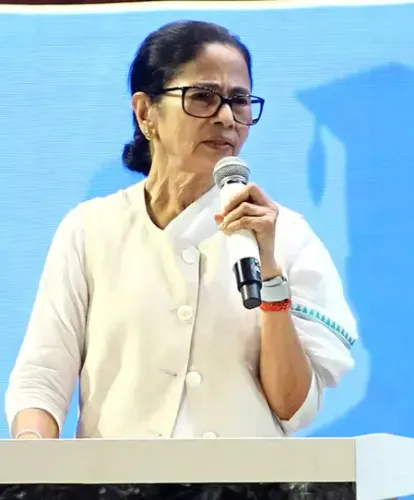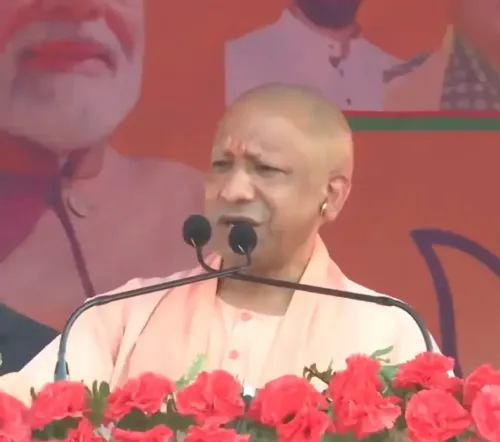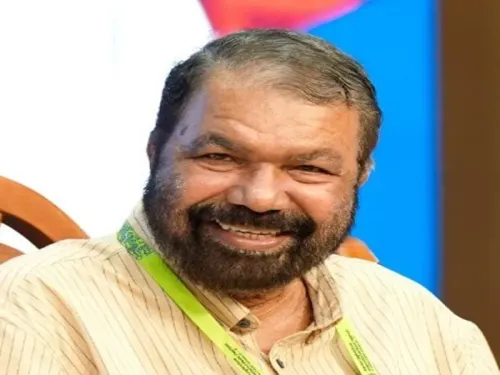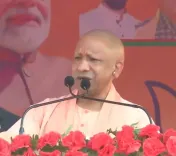Is PKVY Revolutionizing Organic Farming in India?
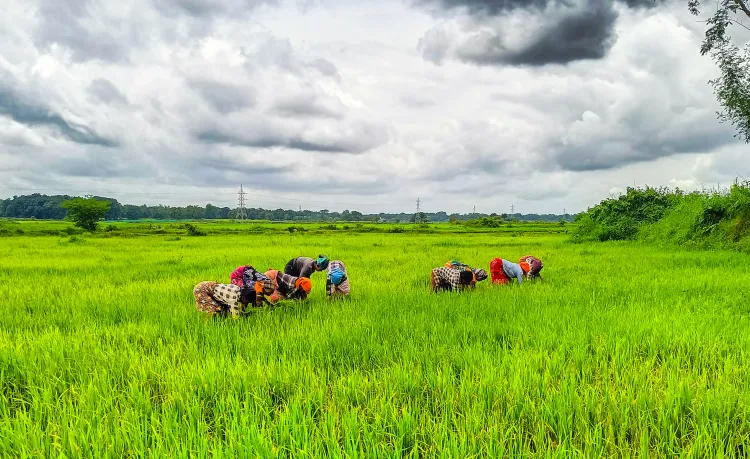
Synopsis
Key Takeaways
- PKVY has allocated Rs 2,265.86 crore for organic farming initiatives.
- Approximately 15 lakh hectares are now under organic farming.
- Farmers receive Rs 31,500 per hectare over three years.
- Sikkim is the only 100% organic state globally.
- PKVY promotes a cluster-based approach for resource-sharing.
New Delhi, Oct 6 (NationPress) As India embarks on a transformative journey in agriculture, the Paramparagat Krishi Vikas Yojana (PKVY) has evolved organic farming from a specialized niche to a significant mainstream agricultural initiative. As of January 30, this year, a substantial amount of Rs 2,265.86 crore has been allocated under PKVY (2015–25), according to government data released on Monday.
In the fiscal year 2024-25, approximately Rs 205.46 crore was allocated for PKVY under the Rashtriya Krishi Vikas Yojana (RKVY).
Currently, around 15 lakh hectares are dedicated to organic farming, with 52,289 clusters established and 25.30 lakh farmers benefiting from these initiatives as of February 2025. Efforts continue in the existing 1.26 lakh hectares adopted in 2023-24 while 1.98 lakh hectares are undergoing a three-year conversion process in 2024-25.
During 2023-2024, 50,279 hectares in Dantewada, Chhattisgarh, and 4,000 hectares in West Bengal were included under the Large Area Certification (LAC) program.
As of December 31, 2024, 9,268 Farmer Producer Organizations (FPOs) were registered under the central sector scheme aimed at promoting 10,000 FPOs. Additionally, 14,491 hectares in Car Nicobar and Nancowry Islands achieved certified organic status under LAC.
All 2,700 hectares of cultivable land in Lakshadweep is now certified organic, while about 60,000 hectares in Sikkim received Rs 96.39 lakh in support under LAC, making Sikkim the only state in the world that is 100% organic.
By December 2024, 6.23 lakh farmers, 19,016 local groups, 89 input suppliers, and 8,676 buyers were registered on the ‘Jaivik Kheti’ portal.
Over the last decade, PKVY has become a vital component of India’s organic farming movement, providing farmers with a structured platform to embrace eco-friendly practices, secure organic certification, and connect with markets that value sustainable production. What began as a cluster-based initiative has now evolved into a comprehensive ecosystem of training, certification, and market development, shaping India's long-term vision for resilient agriculture.
Farmers adopting organic practices under PKVY are supported with Rs 31,500 per hectare over a three-year period.
The core of PKVY is the cluster approach, where farmers are organized into groups of 20 hectares to collectively implement organic farming techniques. This strategy not only maintains uniform standards but also lowers costs by promoting resource-sharing, according to government sources.

